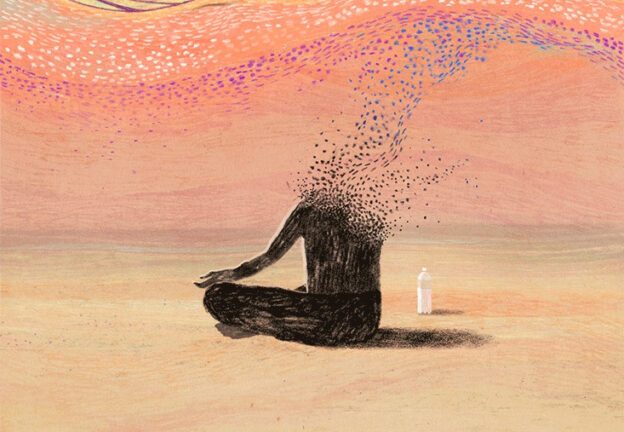To dust off an old joke: The nurse, after fluffing Mr. Goldberg’s pillow, asks him if he’s comfortable. He responds, “Eh, I make a decent living.”
I’ve always found people’s infatuation with money funny.
That’s not to say the stuff isn’t useful, or that a certain amount of it (increasingly more, of late) is required to live even a simple life. But I just can’t fathom why people with billions of dollars in assets spend their time – in many cases, all of their waking hours – trying to amass even more. What exactly can a fellow do with $10 billion that he can’t with a mere $5 billion? After all, one can only occupy one yacht or jet at a time, no?
My wife and I own some valuable assets, but if, chas v’shalom, a burglar rifled through our possessions, he wouldn’t likely find her diamond engagement ring (which she chooses not to wear – nothing personal, she assures me). It’s hidden in too clever a place (not telling). Or my gold chasunah watch (ditto).
And he’d surely overlook the really valuable things in our home.
Like the piece of paper with the words “Rav Hecksher” written on it in Hebrew. That dates from my year – many years ago – in Yeshivas Kol Torah in Yerushalayim. Around Chanukah, we “chutzniks” were graduated from an “Ivrit Kal” shiur to one of two regular ones. I had come to know Rav Dovid Hecksher, zt”l, a true tzaddik, and desperately wanted to be in his shiur. The determinations were made by lottery, and, well, that paper is the lot I drew.
The esrog box I use each year is another of my invaluable possessions. No, it isn’t silver. It’s cardboard, but with children’s colorful artwork adorning it. Those children are now grown with families of their own, b”H. But each Sukkos I’m reminded of when their hands were tiny.
Then there’s the framed faded ticket hanging on our dining room wall. It was for admission to the Twin Towers, to the top of which my wife took three of our children on August 30, 2001. Some reminders are happy; others, grim.
I also have a wonderful note from a boy who attended a California yeshiva where I was learning back in the late 1970s. He was quite an annoyance and we had a mutually antagonistic relationship. I owned a motorcycle back then – it was a convenient mode of transportation to the laundromat and such – and I spun out one day, fracturing my wrist and cutting my face a bit in the process.
The boy’s note, left on my dormitory desk, reads: “I’m so happy you’re okay.” It was sincere, and the boy and I got along swimmingly thereafter.
There are several personal notes from Rabbi Moshe Sherer, a”h, that I cherish. And, less cherished but valuable to me all the same, a napkin from a White House Chanukah party during Dubya’s presidency.
And scores of wonderful letters from talmidim and talmidos I taught in California and Rhode Island mosdos. And assorted kindergarten projects, now decades old, taped to walls in our home.
My most recently acquired cherished possession has a “real” value of, at most, five cents.
It is a gift that was presented to me by a panhandler I often pass in lower Manhattan, where he sits on the sidewalk with a can. I have never offered him money – he knows that I know that he’s looking for tourists – but have always greeted him and wished him well. Usually, he spies me before I reach him and calls out loudly “Hi, rabbi!”
But a couple of months ago, he was standing by a table where knicknacks were for sale, and greeted me with a broad smile. “Hey, rabbi, I got a job!” he proudly informed me.
I congratulated him and shook his hand. Moving on, I heard him call out to me and turned around. There he was, having momentarily left his post, offering me a keychain depicting a yellow cab.
It has a place of honor over my desk.
© 2022 Ami Magazine









